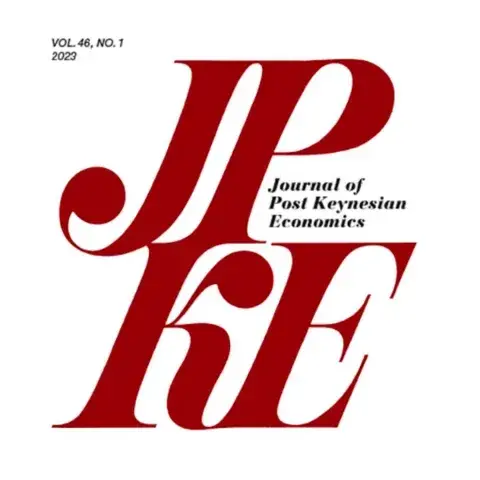
Professor Andrea Terzi's paper, "Fiscal sustainability under a paper standard: two paradigms" opens the 2023 issue of the Journal of Post Keynesian Economics.
This paper investigates the theoretical foundations of fiscal sustainability and the policy prescription that when the trajectory of public debt is above a certain threshold, priority should be given to fiscal consolidation. The author contends that the assumption that the government sector is subject to an intertemporal budget constraint can be validated only within a real-exchange economy where money is neutral and public debt entails the absorption of private savings.
Conversely, when the economy is viewed as a system of interlocking balance sheets under a paper standard, public debt may prompt higher prices but not an inflation overhang forcing monetization or default. Another justification regards the quality of spending when policymakers’ incentives create a deficit bias, but this must be balanced against the need to flexibly provide safe financial assets to offer fiscal support when needed. In conclusion, limiting fiscal action within an intertemporal budget constraint is unwarranted under a paper standard and generates deflationary effects, underlining the urgent need that Europe move decisively toward the creation of a coordinated fiscal policy joined to a permanent capacity to issue EU debt. This is today’s most urgently needed reform for the economic, social, and political sustainability of the European Union.

